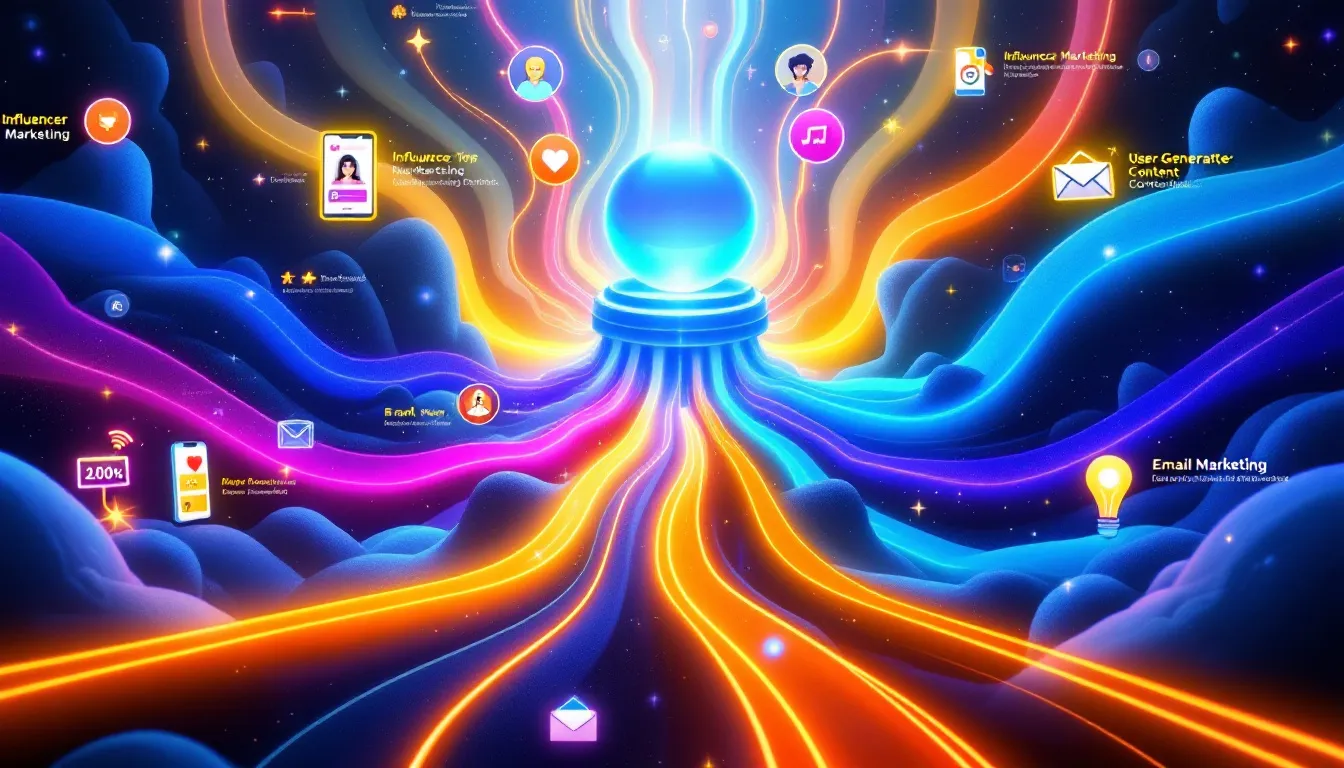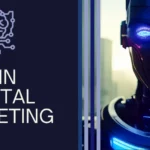
Best Practices for Successful Engagement Marketing Strategies
Engagement marketing is about creating meaningful interactions with customers. It’s different from traditional marketing because it focuses on personal connections. This guide explores essential practices for successful engagement marketing.
Key Takeaways
-
Engagement marketing prioritizes personalized interactions over traditional broad messaging, fostering brand loyalty and customer relationships.
-
Data-driven insights and a multi-channel approach are essential for tailoring marketing strategies to customer preferences and maximizing engagement.
-
Incorporating innovative tools like gamification and interactive content enhances customer experiences and drives deeper brand engagement.
Understanding Engagement Marketing

Engagement marketing is all about crafting a customer-centered experience that emphasizes interaction and involvement with a brand. Unlike traditional marketing tactics, which often focus on broad, one-size-fits-all messages, customer engagement marketing strategies prioritize personal connections and meaningful interactions. This shift requires a complete transformation in how brands communicate with their audiences, focusing on lower-cost strategies to build brand awareness and foster loyalty through an engagement marketing campaign and a customer engagement marketing strategy.
The benefits of engagement marketing are manifold. Fostering worthwhile interactions significantly enhances customer relationships, increasing loyalty and engagement. Engaged customers tend to be more loyal and are more likely to act as brand advocates, spreading positive word-of-mouth marketing.
Engagement marketing aims to create lasting bonds with customers, increasing retention rates and transforming them into emotionally invested lifelong advocates. This approach leads to more meaningful customer relationships, enhancing brand awareness and loyalty, and helps to engage customers.
Key Components of an Effective Engagement Marketing Strategy

The backbone of any successful engagement marketing strategy lies in its key components. Personalized marketing is critical for addressing individual customer preferences and boosting engagement. Understanding what each customer values allows brands to tailor messages that resonate deeply, creating a personal and meaningful experience.
Data-driven insights are crucial. Data analytics refine strategies and improve target audience targeting, aligning campaigns closely with audience preferences, thereby increasing engagement rates. This approach ensures marketing efforts are informed by real customer behavior and preferences, not just shots in the dark.
A multi-channel marketing approach enhances the customer relationship management experience and fosters long-term relationships by allowing engagement through preferred platforms, be it social media, email, or in-person events.
Developing Personalized Customer Interactions
Personalized customer interactions are central to effective engagement marketing. Personalized experiences enhance satisfaction and foster loyalty by making customers feel acknowledged and valued, ultimately contributing to customer lifetime value.
Achieving this level of personalization requires leveraging customer data analytics. Analyzing behavior, preferences, and demographics allows marketers to craft personalized messages that align with consumer needs, leading to higher conversion rates. Incorporating customer feedback into personalization efforts further improves engagement strategies.
Innovative tools like conversational AI, such as chatbots, improve customer service and engagement by providing personalized experiences at scale. Effective personalization requires a deep understanding of customer behavior and preferences, but the payoff in loyalty and engagement is well worth the effort.
Leveraging Data for Customer Insights
Data is crucial for modern engagement marketing strategies. Data analytics uncover hidden customer preferences and behaviors, providing valuable insights for enhancing marketing efforts. Segmenting data allows marketers to tailor strategies to specific customer groups, ensuring relevant content for each segment.
Real-time data processing allows immediate adjustments to marketing tactics based on customer interactions, ensuring strategies remain aligned with customer needs and preferences. Predictive analytics powered by AI enable brands to anticipate customer behavior and tailor marketing strategies accordingly, enhancing engagement.
Marketing automation tools simplify campaign management and ensure personalized communication across touchpoints, maintaining consistent and relevant interactions crucial for fostering long-term relationships. Social media analytics help identify content that resonates most with the audience, allowing brands to optimize their content marketing strategies effectively.
Crafting Engaging Content Across Channels

In engagement marketing, content is king. Crafting diverse content types tailored to each platform captures audience interest and encourages sharing. Whether a compelling blog post, an engaging social media update, or an informative video, content must fit each platform’s nuances to maximize impact.
Regularly measuring and analyzing channel performance optimizes marketing strategies, helping understand what works best on each platform and allowing for continuous improvement. Monitoring engagement metrics allows brands to make data-driven decisions to refine content marketing efforts.
Tailoring content to each platform requires understanding each channel’s unique characteristics and audience behaviors. For instance, what works on Instagram might not be as effective on LinkedIn. A creative director ensures content is engaging and platform-appropriate, driving higher engagement rates and better brand awareness.
Implementing Gamification in Marketing Strategies
Gamification is a powerful engagement marketing tool. Applying video game concepts like points, badges, and challenges creates engaging customer experiences that drive repeat interactions and foster loyalty. This approach makes the experience enjoyable and enhances customer loyalty.
Successful gamification examples include loyalty programs that incentivize engagement with exclusive offers and rewards. For instance, McDonald’s digital Monopoly game encourages repeat purchases to collect game pieces and win prizes. Techniques like virtual treasure hunts and mobile apps with customizable avatars create engaging brand experiences and enhance customer relationships.
Incorporating gamified features like ‘spin-to-win’ games on e-commerce sites enhances the shopping experience and maintains customer interest. These elements make shopping enjoyable and encourage deeper engagement with the brand, leading to higher engagement rates and better customer retention.
Utilizing Social Media for Customer Engagement

Social media is a cornerstone of modern engagement marketing. It allows direct customer interaction, promoting participation and fostering community. Platforms like Facebook, Instagram, and Twitter provide real-time feedback, enabling strategy adjustments based on customer responses.
Tracking social media engagement indicates how well content resonates with the audience. User-generated content like reviews, testimonials, and posts encourage community involvement and foster brand loyalty. Leveraging user-generated content allows brands to create authentic and relatable marketing messages that resonate with target audiences.
Consistent posting schedules increase visibility and engagement rates. Maintaining a regular social media presence keeps the audience engaged and informed, building stronger customer relationships. Social media platforms offer valuable insights into customer behavior, helping brands tailor content and engagement strategies more effectively.
Enhancing Customer Experience with Interactive Marketing
Interactive marketing enhances customer experience by creating personalized interactions that make customers feel valued and understood, fostering long-term loyalty and satisfaction. Incorporating quizzes and polls into marketing strategies significantly boosts user engagement across various platforms.
Interactive content like quizzes, surveys, and product demos entertain customers and provide valuable insights into their preferences. This two-way conversation enhances personalization and makes customers feel more connected to the brand.
Cross-platform interactivity technologies create seamless and engaging user experiences. For example, Amazon’s live events often include limited-time deals, product launches, personalized presentations, contests, and gamification, all designed to boost customer engagement. A consistent brand voice across platforms creates a unified customer experience, enhancing engagement.
Measuring the Success of Engagement Marketing Campaigns
Measuring the success of engagement marketing campaigns is crucial for continuous improvement. Establishing clear goals is essential for evaluating a campaign’s effectiveness. Key Performance Indicators (KPIs) offer insights into campaign performance, allowing marketers to adjust strategies as needed.
Metrics like Return on Investment (ROI) and Return on Ad Spend (ROAS) are vital for assessing marketing effectiveness. Utilizing tools like Google Analytics enhances measurement accuracy, ensuring brands can make data-driven decisions. A structured measurement schedule during a campaign helps identify opportunities for improvement.
Real-time data tracking allows marketers to promptly adjust strategies based on performance. Feedback loops are crucial for continuous improvement and customer satisfaction, ensuring engagement marketing adapts to customer feedback.
Future Trends in Engagement Marketing

Emerging trends and technologies shape the future of engagement marketing. AI-driven content personalization will play a significant role in creating more effective engagement campaigns. Engagement marketing platforms are incorporating AI features for efficient campaign creation, allowing for more personalized and targeted efforts.
Augmented Reality (AR) technology improves customer engagement experiences. Virtual try-ons and interactive product demos are becoming more common, providing immersive and engaging experiences. These trends indicate a shift towards more interactive and personalized marketing efforts that resonate with consumers.
As these technologies evolve, they will transform engagement marketing strategies, making them more effective and customer-centric. Brands that stay ahead of these trends will be better positioned to create meaningful interactions and foster long-term customer loyalty.
Summary
In conclusion, engagement marketing is a powerful approach to building lasting customer relationships. By understanding the key components, leveraging data, crafting engaging content, and staying ahead of future trends, brands can create successful engagement marketing strategies that drive customer loyalty and retention. As we move forward, the importance of personalized, data-driven, and interactive marketing efforts will only continue to grow, making engagement marketing an essential part of any brand’s strategy.
Frequently Asked Questions
What is an engagement strategy?
An engagement strategy is a deliberate plan used by organizations to attract and maintain the interest and loyalty of their target audience through meaningful interactions. This approach aims to foster strong relationships with customers, ultimately enhancing their overall experience.
What is engagement marketing?
Engagement marketing focuses on creating a customer-centric experience that fosters interaction and involvement with a brand, ultimately enhancing loyalty and engagement. This approach ensures that customers feel valued and connected.
Why is personalization important in engagement marketing?
Personalization is crucial in engagement marketing because it fosters customer loyalty and increases conversion rates by ensuring that content resonates with the individual’s interests. When customers feel understood and valued, they are more likely to engage meaningfully.
How can data analytics improve engagement marketing strategies?
Data analytics enhances engagement marketing strategies by revealing customer preferences and behaviors, enabling tailored approaches for specific groups and facilitating real-time adjustments to improve effectiveness.
What role does social media play in engagement marketing?
Social media plays a crucial role in engagement marketing by facilitating direct interaction with customers, fostering active participation, and enabling real-time feedback that informs brand strategies. This dynamic connection enhances customer relationships and drives engagement.









